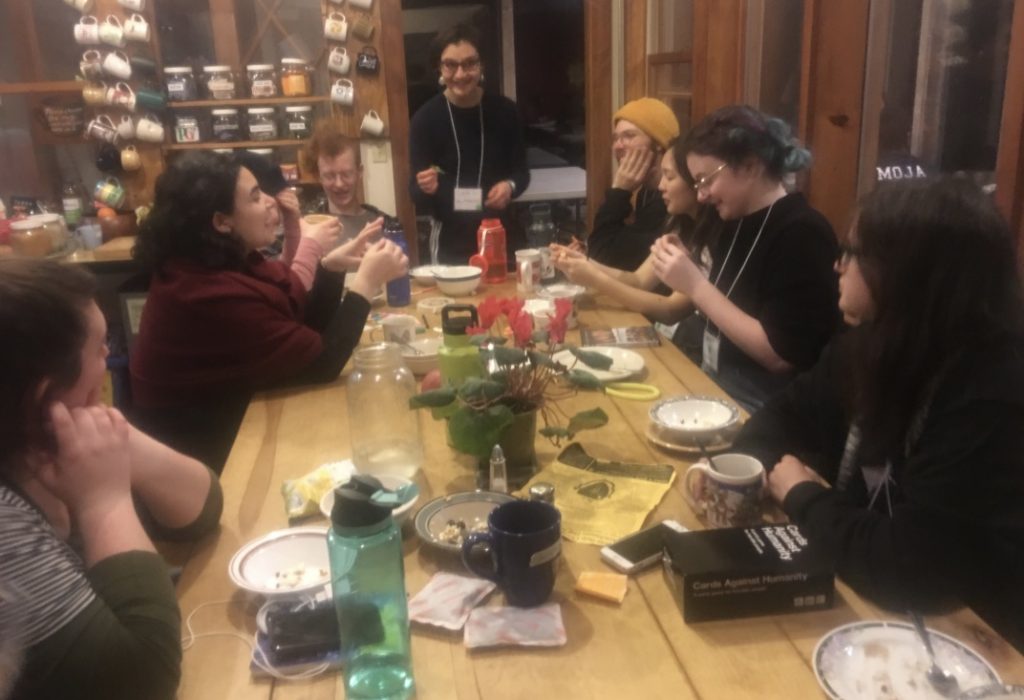Radical Practice of Care Retreat
Radical Practice of Care Retreat
On March 15-17, 2019 a group of 33 Hampshire students and staff ventured on the first Radical Practice of Care Retreat, which took place at Earthdance retreat center in Plainfield, MA. Presented by the Hampshire College Wellness Center with support from Ethics and the Common Good program, Residence Life, Spiritual Life, and the Office of Accessibility Resources. The purpose of the retreat was three-fold:
- To promote care for the self in ways that are intentional, sustainable, and transcend the commercialization of “self-care” in mainstream society.
- To promote care for others, including both those with whom we are close, as well as those whom we perceive as different from us (i.e. “the other”).
- To promote care for the community, particularly in social and activist climates where call outs and burn out are rampant.
Most importantly, the retreat aimed to instill the understanding that these three types of care are not independent of one another, but rather, they are all intertwined in how we seek a nourishing experience in the world.
Throughout the retreat, the team of ten facilitators (five professional staff and five students) led participants in a variety of activities, such as: building a care altar; examining the neurobiology of safety and trust; exploring the social constraints of shame on vulnerability and interdependence; and developing constellation maps of their care networks. On the second morning of the program, the group was joined by guest facilitator and Hampshire alum, Jamila Jackson, who taught participants the valuable practice of resonance.
Woven into the numerous activities, were processing conversations that took place in small groups. These “home” groups allowed participants to build a unique rapport with three or four other peers and two members of the student-staff facilitation team, as they engaged in more intimate explorations of retreat topics.
And while participants challenged themselves consistently throughout the day, the evening hours brought time for attendees to truly bond with one another. On the last night, laughter and excitement filled the retreat center as attendees ate popcorn and pie, played board games, watched movies, made music together, read tarot cards, and sat outside by the campfire.
During a particularly challenging semester this retreat ultimately gave participants the ability to recharge off-campus, do some deep reflection into their own care practices, and establish profound and long-lasting connections to others on campus.
by Ashley Natanel, Associate Director of Wellness Promotion


